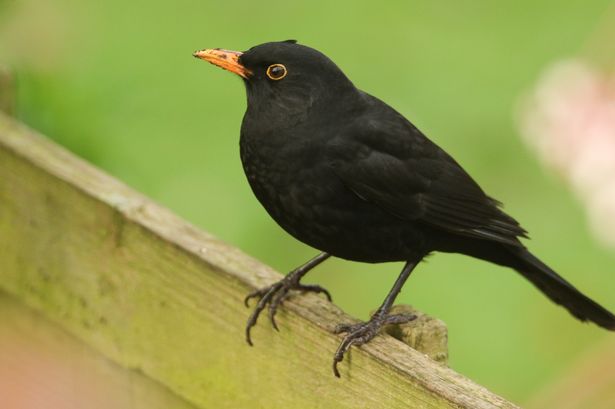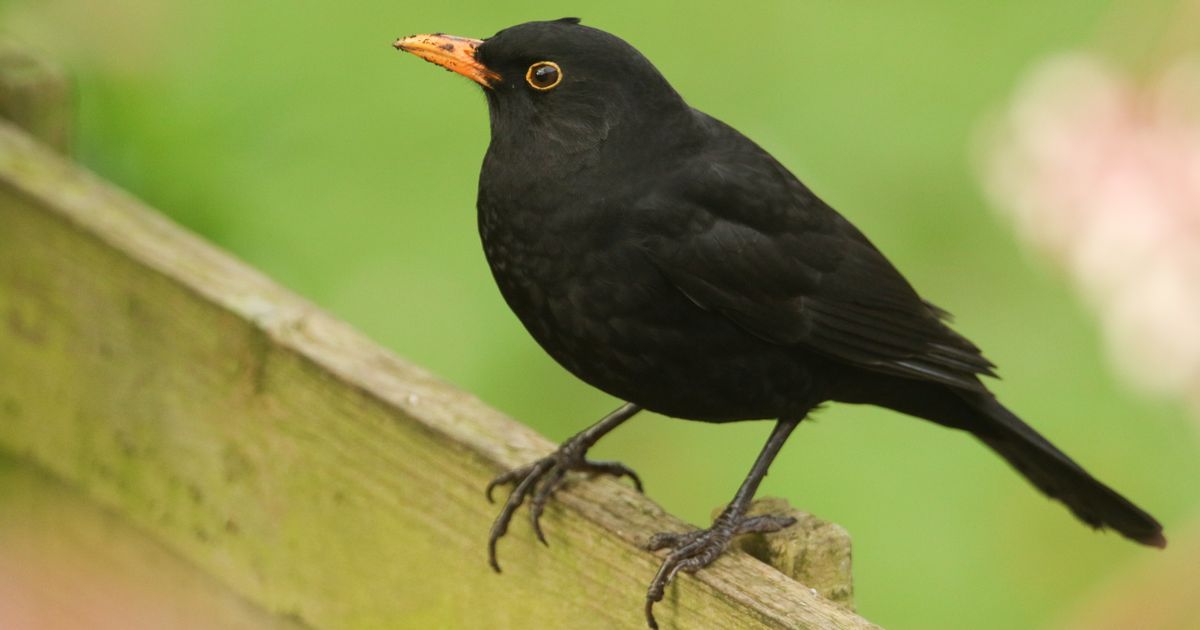A disease is devastating the population and the British Trust for Ornithology is asking for all people with gardens and blackbirds to sign up to a special survey People with blackbirds in their garden are being urged to help out a special survey as the species is being hit with a lethal disease(Image: Getty)
People with blackbirds in their garden are being urged to help out a special survey as the species is being hit with a lethal disease(Image: Getty)
The lethal Usutu virus – a mosquito-transmitted affliction that has been spreading through Blackbirds in southern England, is causing great concern among conservationists.
First seen on UK shores in 2020, the virus has now encroached as far west as Dorset and reached Cambridgeshire in the north. Originating from Southern Africa, Usutu made its way to Europe 30 years ago, where it has been responsible for numerous large-scale Blackbird mortality events Bird Guides reported.
And the British Trust for Ornithology is asking for all people with gardens and blackbirds to sign up to a special survey so it can gauge the extent of the devastation and help where needed.
Though the threat to humans remains marginal – with no recorded cases in Britain – the impact on avian life is significant. Data indicate that in Greater London alone, Blackbird populations have plummeted by up to 40% following the introduction of Usutu after the heatwave in 2020.
Dr Arran Folly from the Animal and Plant Health Agency (APHA) raised the alarm about the rapid spread and prolonged presence of the virus, suggesting it could presage other mosquito-borne diseases reaching the UK. “It gives an indication that in the future we might get other viruses that are transmitted by mosquitoes emerging in the UK,” he cautioned.
Attributed to climate change, expansions in mosquito populations are facilitated by rising temperatures, elongated summers, and more severe rainfall – leading to environments conducive for both the insects and their pathogens to flourish where they once couldn’t.
Joining forces with the British Trust for Ornithology (BTO), APHA researchers aim to delve deeper into Usutu’s impact on native birdlife. Concurrently, the BTO urges the public to assist in monitoring the situation by reporting sightings of Blackbirds.
“Blackbirds are currently nesting and are a common sight in gardens and parks. With public help, we can better track population trends and the virus’s impact,” a BTO spokesperson stated.
While Blackbird populations remain steady in rural and northern areas, the unpredictable nature of the virus necessitates ongoing surveillance. The joint efforts of APHA and BTO aim to provide vital data to inform conservation strategies and prepare for future emerging diseases.
The BTO said: “We are trying to better understand the extent and spread of Usutu virus and what the potential impacts of the virus might be on Blackbirds. In particular, as Blackbird numbers were already decreasing in London, a large urban area, we want to know if anything similar is happening in other urban areas, or whether these changes are specific to the capital, and how this compares to smaller urban and more rural areas.”
How will Blackbirds in Gardens help?
This survey will help the BTO understand the potential for disease transmission by Blackbirds in gardens by looking at the number of birds that occur together. The group said it will aid in understanding how Blackbird’s use of different types of gardens varies, and how well young can be raised, especially at different levels of urbanisation from rural to urban gardens.
The BTO said: “Although largely harmless to humans, this is the first time in modern history that a mosquito-borne viral zoonosis (a disease which can be transmitted from animals to humans) has emerged in wild animal hosts in the UK but, with changing climates, more may occur in the future.
“Using Usutu virus and Blackbirds as a case study, this survey is part of the Vector-Borne RADAR project, a wider partnership project funded by the UKRI and Defra to understand the emergence and transmission of mosquito-borne viruses in the UK more generally which are expected to increase with climate change.
“The project will improve understanding of how these viruses emerge in new environments, enhance surveillance of diseases in wild birds in the UK and develop an early warning system for disease outbreaks.”
This survey will take place to September 2025.
How to sign up to the survey
You can sign up for Blackbirds in Gardens online.
